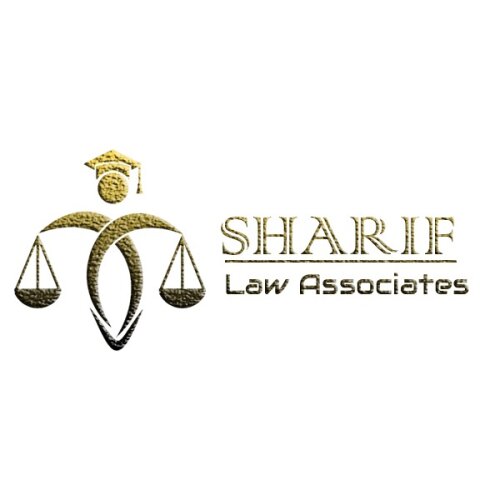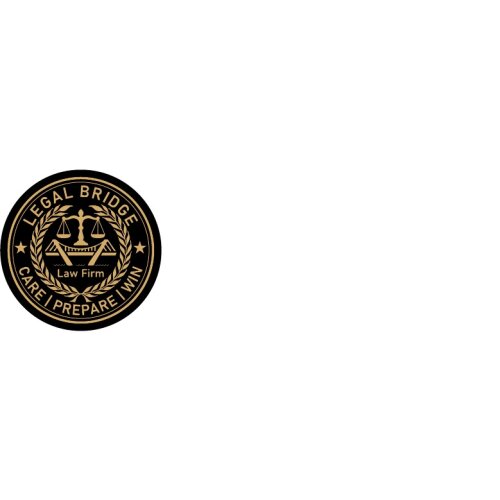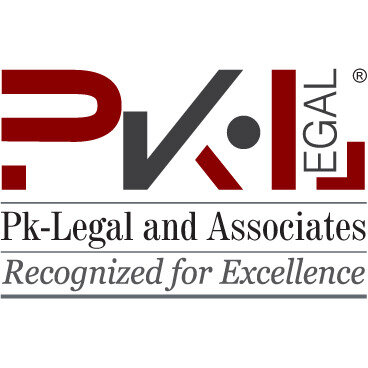Best Structured Finance Lawyers in Pakistan
Share your needs with us, get contacted by law firms.
Free. Takes 2 min.
Or refine your search by selecting a city:
List of the best lawyers in Pakistan
About Structured Finance Law in Pakistan
Structured finance is a specialized area of finance that involves complex financial instruments and strategies to help borrowers meet unique funding needs or manage risk. In Pakistan, structured finance has gained significance in recent years due to rapid economic development, increased participation in capital markets, and the growing sophistication of financial products. Typical instruments include securitization, syndicated loans, project financing, asset-backed securities, sukuk (Islamic bonds), and derivatives. The legal framework around structured finance is shaped by banking laws, securities regulations, contract law, and relevant tax rules. Regulatory bodies such as the Securities and Exchange Commission of Pakistan (SECP) and the State Bank of Pakistan (SBP) play a significant role in supervising and authorizing structured finance activities.
Why You May Need a Lawyer
Structured finance transactions are intricate and often involve numerous parties, cross-border jurisdictions, and substantial regulatory requirements. Legal assistance becomes essential for a variety of reasons, including:
- Drafting and negotiating loan and security documents
- Ensuring regulatory compliance, such as adherence to SECP or SBP rules
- Structuring deals to minimize financial and legal risks
- Managing tax implications and optimizing the transaction structure
- Conducting due diligence on involved assets or parties
- Addressing cross-border legal issues in syndicated or international deals
- Dispute resolution in case of defaults or contractual disagreements
- Legal opinions on enforceability and risk
- Guidance on Shariah compliance for Islamic finance structures
Given the stakes and complexities, expert legal guidance is crucial to safeguard interests and ensure that transactions are executed smoothly and lawfully.
Local Laws Overview
Structured finance in Pakistan is governed by a broad set of laws and regulations. Some of the most important legal frameworks and regulatory points include:
- Banking Companies Ordinance 1962 - Governs the activities of banks and their powers to issue loans and investments
- Companies Act 2017 - Covers company formation, governance, and contractual arrangements for special purpose vehicles (SPVs)
- Securities Act 2015 - Sets rules for the issuance and trading of securities including asset-backed and mortgage-backed instruments
- Securitization Companies Rules 2012 - Regulate the formation and operation of entities involved in asset securitization
- Islamic Finance Regulations - Various SECP and SBP regulations ensure compliance with Shariah principles for sukuk and other products
- Foreign Exchange Regulations - Govern cross-border structured finance deals and foreign investments under the State Bank of Pakistan
- Tax Laws - Income Tax Ordinance 2001 and related statutes outline tax treatment for structured finance products and transactions
It is important to note that structured finance deals must often meet disclosure, registration, and reporting standards to qualify for legal enforceability and investor protection. Compliance with Anti-Money Laundering (AML) and Know Your Customer (KYC) guidelines is also mandatory.
Frequently Asked Questions
What is asset securitization?
Asset securitization is the process of pooling financial assets such as loans, mortgages, or receivables, and converting them into tradable securities that can be sold to investors in the capital market.
Is structured finance legal in Pakistan?
Yes, structured finance is legal and recognized in Pakistan, subject to compliance with relevant laws and regulations as enforced by SECP, SBP, and other authorities.
What are sukuk and how are they regulated?
Sukuk are Islamic alternative to bonds, structured to be Shariah compliant. They are regulated by both SECP and SBP under Islamic finance frameworks and guidelines.
Can foreign investors participate in structured finance deals in Pakistan?
Yes, foreign investors can participate, but they must comply with foreign exchange regulations and any additional SECP or SBP requirements.
What role does the State Bank of Pakistan play?
The State Bank of Pakistan regulates and supervises banks, oversees monetary policy, and issues guidelines for credit and structured finance products relating to banks and financial institutions.
What is a special purpose vehicle (SPV) and why is it used?
An SPV is a legal entity created to isolate financial risk by holding specific assets and liabilities for a structured finance transaction, such as securitization or asset-backed lending.
Do structured finance deals require approval from SECP?
Many structured finance transactions, particularly those involving securities, require SECP approval for registration, disclosure, and compliance with investor protection rules.
What are the key risks in structured finance?
Key risks include credit risk, legal enforceability, market risk, regulatory compliance, and, in the case of cross-border transactions, foreign exchange risk.
How is confidentiality handled in structured finance transactions?
Confidentiality is typically dealt with through contractual clauses and is further reinforced by regulatory requirements governing data privacy and insider trading.
Can disputes in structured finance deals be resolved through arbitration?
Yes, parties can choose arbitration as the preferred dispute resolution method, provided it is agreed upon in the transaction documents and is enforceable under local and international law.
Additional Resources
If you require further information or guidance, the following resources may be helpful:
- Securities and Exchange Commission of Pakistan (SECP) - The primary regulator for non-banking financial companies and capital markets, including structured finance products
- State Bank of Pakistan (SBP) - Sets policy and regulations for banking transactions and oversees the implementation of structured finance guidelines for banks
- Pakistan Stock Exchange (PSX) - Facilitates trading of listed structured finance instruments such as sukuk and bonds
- Pakistan Banks Association - Provides information and support on syndicated loans and major banking transactions
- Institute of Chartered Accountants of Pakistan - Useful for understanding the accounting and auditing standards for structured finance products
- Local and international law firms specializing in finance and securities law
Next Steps
If you believe you need legal advice or assistance in structured finance, here are the key steps to take:
- Identify your specific legal need, whether related to deal structuring, regulatory compliance, dispute resolution, or due diligence
- Gather all relevant documents, such as contracts, regulatory correspondence, and financial information
- Contact a qualified lawyer or legal firm with expertise in finance law and, if applicable, Islamic finance
- Prepare a summary of your case or transaction for your legal advisor
- Discuss potential risks, regulatory requirements, and transaction structures with your lawyer
- Stay informed about changes in the law by following updates from SECP, SBP, and other regulatory bodies
Timely legal guidance can help avoid costly mistakes, ensure compliance, and foster successful structured finance transactions in Pakistan.
Lawzana helps you find the best lawyers and law firms in Pakistan through a curated and pre-screened list of qualified legal professionals. Our platform offers rankings and detailed profiles of attorneys and law firms, allowing you to compare based on practice areas, including Structured Finance, experience, and client feedback.
Each profile includes a description of the firm's areas of practice, client reviews, team members and partners, year of establishment, spoken languages, office locations, contact information, social media presence, and any published articles or resources. Most firms on our platform speak English and are experienced in both local and international legal matters.
Get a quote from top-rated law firms in Pakistan — quickly, securely, and without unnecessary hassle.
Disclaimer:
The information provided on this page is for general informational purposes only and does not constitute legal advice. While we strive to ensure the accuracy and relevance of the content, legal information may change over time, and interpretations of the law can vary. You should always consult with a qualified legal professional for advice specific to your situation.
We disclaim all liability for actions taken or not taken based on the content of this page. If you believe any information is incorrect or outdated, please contact us, and we will review and update it where appropriate.
Browse structured finance law firms by city in Pakistan
Refine your search by selecting a city.

















